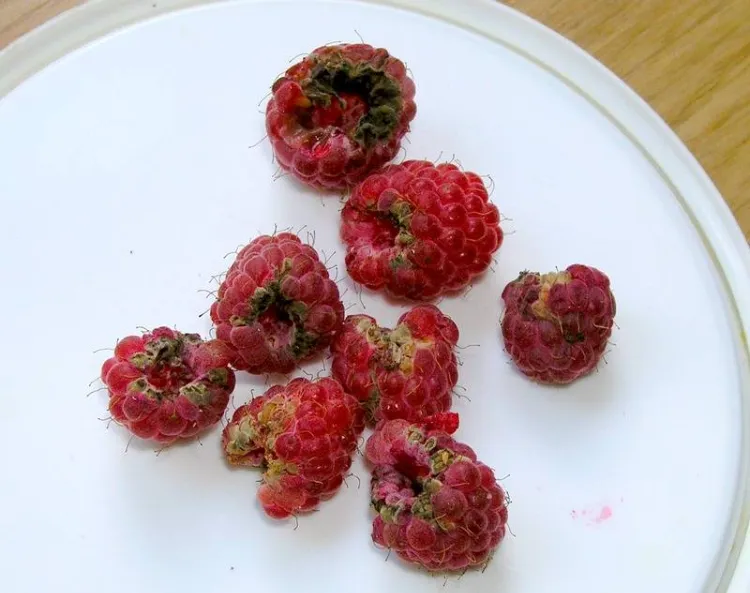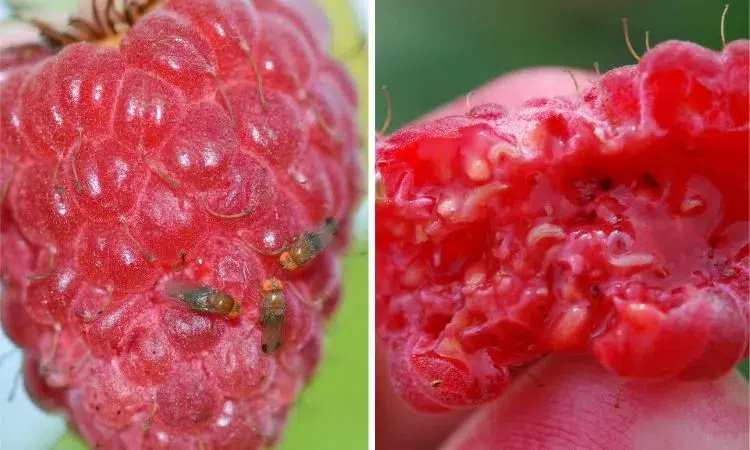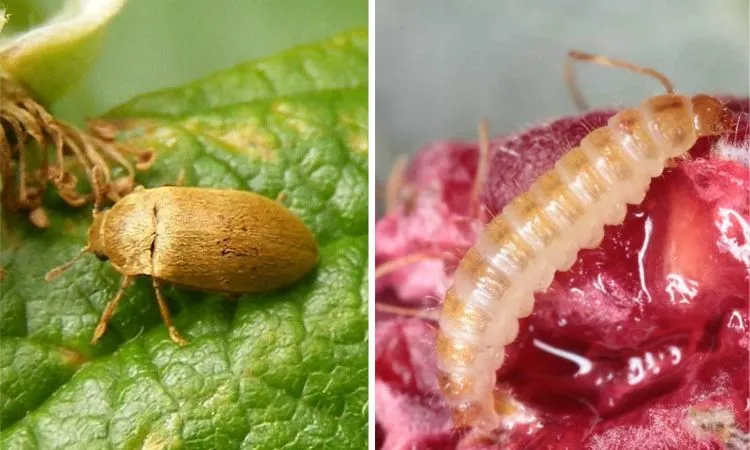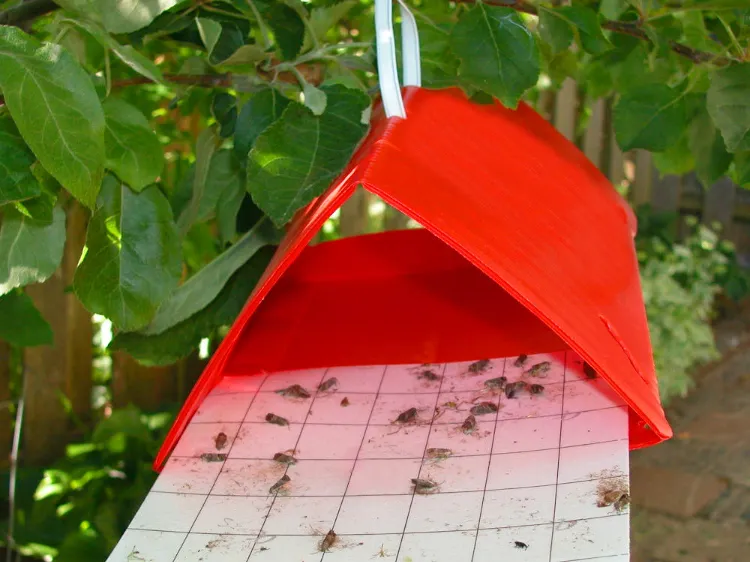Are your raspberries deformed, dried out or rotten? You may be facing a serious problem that can affect the entire harvest. It’s often caused by worms in raspberries. Fortunately, there is a solution based only on natural ingredients for 100% organic gardening.
How Do You Know if There Are Worms in Raspberries?
Two types of worm are often found in the red berries of raspberry bushes. Even though they are very small, you can easily notice that something is wrong with the raspberries. Generally, they are deformed, brown and hard, sometimes dried out. This damage makes them rot faster, even before you pick them up. You may think they are getting dehydrated and black areas are appearing due to heat, but if you open the fruit, you’ll see tiny white worms inside. Otherwise, you won’t even notice them.
Why Are There Worms in Raspberries?
As already mentioned, there are two different grubs that can be found in raspberries. These are insect larvae that feed on the juicy fruit. Here’s how to identify them and the difference between the two.
Spotted Wing Drosophila (SWD)
The spotted wing drosophila (Drosophila Suzuki) is only 0,1 inch/2 to 3 mm long. Its larvae are about the same size. They are white, without legs. This tiny pest appears in late June or early July, and its numbers increase rapidly in mid-summer, peaking in August. If you notice this type of Drosophila around the bushes, you can be sure that sooner or later it will lay its eggs in soft fruit, where the larvae will develop.
Raspberry Beetle (Byturus Tomentosus)
This is the other common raspberry pest that is also found on brambles. It is a small beetle, barely 0,2 inches/5 mm long. It is brown in color and covered with golden hairs. It is also known as the raspberry worm because of its white larvae. As you can see in the photo, it is different from the fruit fly. It is larger – about 0,3 inches/7mm long. Its color is creamy with brown spots on each body segment. It also has legs. Another difference is that this small worm feeds on the various organs of flowers, not just fruits, by digging galleries in them. As for the adult, it feeds on pollen from flowers and very young leaves as soon as temperatures rise above 62°F/17°C.
What Insecticide to Use on Raspberries?
So, what to do? How to treat raspberries? Can we prevent them from appearing and how? Here’s what the experts say:
Preventive Solutions
Plant associations are an excellent measure to take. So, if you’re wondering what to plant at the foot of raspberry bushes, opt for plants from the garlic family. For a more aesthetic look, plant perennial garlic.
Another idea is to apply an infusion of tansy (10 oz per 2,5 gallons/ 300 grams per 10 liters of water). Its powerful aroma will repel flies.
Trapping
If your garden is already infested, you can install fly traps. Scientists at the University of Minnesota recommend using plastic cups filled with vinegar. Place a small sticky yellow card inside or add a few drops of unscented dish soap. Close the cup and poke a few holes in the top for flies to access. Then hang them around your bushes. Remember, you need more than one trap to get result.
If your problem is beetles, you need another solution. An interesting fact about this pest is that it is attracted to white color. Take advantage of this by placing sticky white cardboard in your garden, which does not reflect sunlight.
Natural Treatments
If you prefer to use an organic insecticide, do so when the flower buds are first visible and then before the blossoms open. Avoid applying substances, organic or not, when the flowers are open, as you will also repel pollinators. It is also advisable to do this in the evening.
To control the raspberry beetle, use a treatment based on natural pyrethrum. And if you want to eliminate fruit flies from your garden, apply lavender oil.
Can Infested Fruit Be Eaten?
If the damage is minor, you can eat the berries, but it is best to make wine or jelly. In this way, you will disinfect them.
Can Infested Fruit Be Added to the Compost?
After conducting research, scientists confirm that adding infested fruit to compost is unreliable for killing pests, and it is best to avoid it. They remain alive even after burial.




